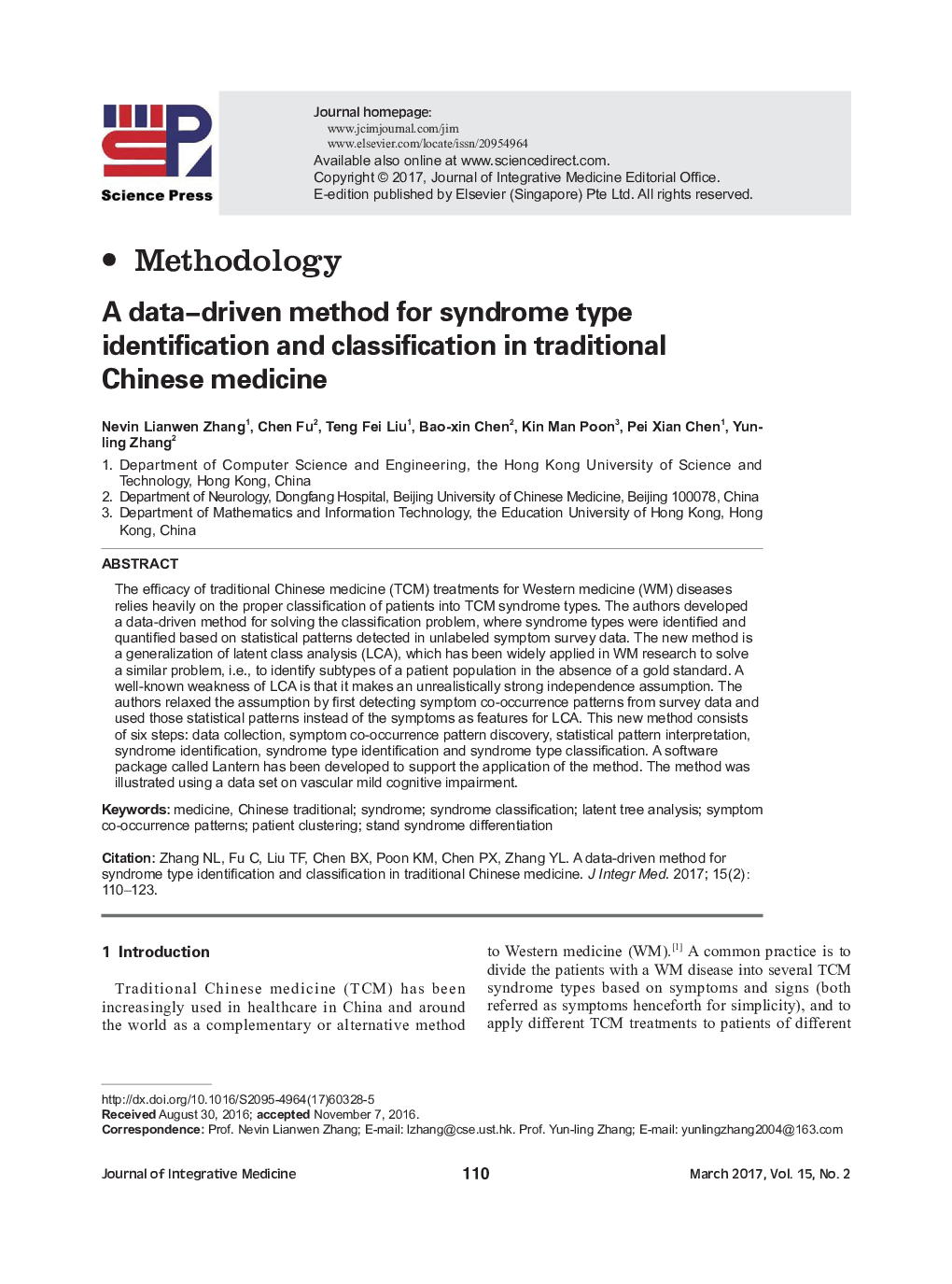| Article ID | Journal | Published Year | Pages | File Type |
|---|---|---|---|---|
| 8693308 | Journal of Integrative Medicine | 2017 | 14 Pages |
Abstract
The efficacy of traditional Chinese medicine (TCM) treatments for Western medicine (WM) diseases relies heavily on the proper classification of patients into TCM syndrome types. The authors developed a data-driven method for solving the classification problem, where syndrome types were identified and quantified based on statistical patterns detected in unlabeled symptom survey data. The new method is a generalization of latent class analysis (LCA), which has been widely applied in WM research to solve a similar problem, i.e., to identify subtypes of a patient population in the absence of a gold standard. A well-known weakness of LCA is that it makes an unrealistically strong independence assumption. The authors relaxed the assumption by first detecting symptom co-occurrence patterns from survey data and used those statistical patterns instead of the symptoms as features for LCA. This new method consists of six steps: data collection, symptom co-occurrence pattern discovery, statistical pattern interpretation, syndrome identification, syndrome type identification and syndrome type classification. A software package called Lantern has been developed to support the application of the method. The method was illustrated using a data set on vascular mild cognitive impairment.
Related Topics
Health Sciences
Medicine and Dentistry
Complementary and Alternative Medicine
Authors
Nevin Lianwen Zhang, Chen Fu, Teng Fei Liu, Bao-xin Chen, Kin Man Poon, Pei Xian Chen, Yun-ling Zhang,
